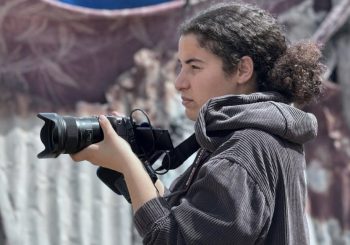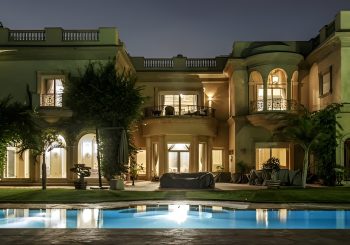By Emad Shahin, American University in Cairo
As I write this, 20 journalists – including several al-Jazeera reporters – are on trial in Cairo on charges of spreading disinformation and abetting terrorists. Their alleged crime includes operating without proper accreditation and conspiring with the Muslim Brotherhood, now a proscribed organisation, to tarnish Egypt’s international reputation. Some of them have been locked up for more than six weeks.
This episode highlights a dangerous state of affairs in Egypt, which is going through an unprecedented period of suppression of fundamental civil rights and a severe stifling of freedom of expression and press.
Following the military coup of 3 July, the new regime has shown little tolerance for dissent or peaceful protest. The massive crackdown against the supporters of former president Mohamed Morsi expanded to include many voices that oppose military rule.
Taking advantage of the absence of an elected legislative body, the coup regime has used with full impunity draconian laws and repressive measures against journalists, academics and peaceful protesters. The coup leader assured his officers in what became known as Sisi-leaks that no one would be held accountable for any brutality against protesters. So far an estimated 3,000 have been killed, 22,000 detained and thousands more injured.
Meanwhile, the man who might reasonably be described as the architect of all this, Field Marshal Abdel Fatah al-Sisi prepares to stand for office as president, bound – as he says – by the “will” of the people.
To be a journalist in Egypt is to have one of the most dangerous jobs in the country. In 2013 Egypt was listed as one of the three deadliest countries in the world for journalists, tailing Syria and Iraq. On the third anniversary of the revolution, more than 1,000 protesters were arrested and 103 shot dead; 36 cases of violations against journalists and photographers were documented, the largest number of such violations since January 2011, according to the Association of Freedom of Thought and Expression.
Reporters Without Borders confirmed in its 2013 annual report that an “anti-Brotherhood witch hunt is under way that targets not only Egyptian journalists but also their Turkish, Palestinian or Syrian colleagues”. This led them to rank Egypt 159th out of 180 countries in the World Press Freedom Index. The military-backed regime’s crackdown on media is systematic and extends to liberal and foreign media exposing the truth after closing down of Islamists’ TV channels and killing scores of journalists over the past eight months.
In Egypt today only one narrative is allowed and that is the regime’s. Anyone who dares to challenge the official account risks being arrested and accused of “spreading fabricated news”. The journalists’ trial is yet further proof of the serious deterioration of the current state of freedom of press in Egypt.
Opinion is not a crime
But journalists are not the regime’s only target. In Sisi’s Egypt, expression of any opinion that is not in line with the regime’s policies is treated as a crime. Three members of Strong Egypt Party were sentenced to three years in prison for distributing flyers and posters advocating a no vote on the draft constitution, which passed with 98% approval. This case is remarkable because the charges bluntly state “the crime” of distributing flyers without exerting the effort of sugarcoating the accusations.
Another equally appalling case is that of Dr Mervat Galil, chair of the radiology department in the Mit Ghamr public hospital. Last month, she was sentenced to two years in prison for wearing a Rabaa Pin during working hours. The indictment included inciting riots in the hospital and belonging to a banned organisation, charges that she along with her husband and colleagues vehemently deny. These two cases demonstrate that the coup regime is determined to follow a zero tolerance policy toward any form of dissent. Any kind of opposition, however peaceful, will be fiercely silenced.
In an attempt to increase control over universities and suppress student activism, The Court for Urgent Matters approved the return of police to campuses, overturning a 2010 ruling that banned their presence. Students and professors alike objected to these measures aiming at suppressing any political views on campus. The campus police is regarded as a symbol of state tyranny and a remnant of the Mubarak era, which students had strongly fought against for years until they won their court case in 2010.
The return of police officers to campuses now demonstrates the extent of the regime’s concern over its inability to control daily peaceful protests by thousands of university students demanding freedom and democracy. During the first six months after the coup, more than 2,000 students and 150 faculty members have been detained. The military-backed government has twice postponed the beginning of the second term for all universities with predictions circulating that it may be cancelled altogether.
But suppression of freedom of expression does not end here; it also extends to the virtual world. So websites, blogs and social media that played a real part in the January 2011 revolt have come under severe scrutiny from the regime. Last month, Mohamed Salah al-Din, a university professor at Cairo University was arrested at his home for expressing views that were sympathetic to the Muslim Brotherhood.
Earlier, blogger Ahmed Nour was sentenced to three months in jail and a fine of 10,000 EGP (US$1500) for posting a satirical video “insulting the police” and making fun of the lack of security in the country. These are not isolated cases. The ministry of interior announced that anyone who “incites violence” though social media, that is expresses dissent, is subject to arrest.
The struggle against the military coup in Egypt is in essence a struggle for the restoration of democracy, basic civil liberties, and the rule of law. It is a struggle between those who believe in freedom is a basic value in society, and where human dignity is respected and those who fear freedom. It’s a battle against a renewed authoritarian regime believing it could resurrect a repressive past and silence dissenters through intimidation, oppression and terror.
Democratic nations must take a strong and unequivocal stand against the behind the scenes military rule, the return of the police state and the gross human rights violations in Egypt.
In January, Emad Shahin was told he faces a charge of “Grand Espionage” in a case which includes former president Mohamed Morsi and senior leaders of the Muslim Brotherhood. He has dismissed these claims as “baseless and politically motivated”.
Emad Shahin does not work for, consult to, own shares in or receive funding from any company or organisation that would benefit from this article, and has no relevant affiliations.
This article was originally published on The Conversation. Read the original article.





Comment (1)
A very important and well corroborated article. We mustn’t submit to a veil of fear for the purported sake of ‘stability’